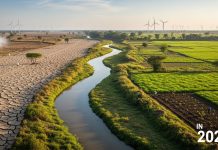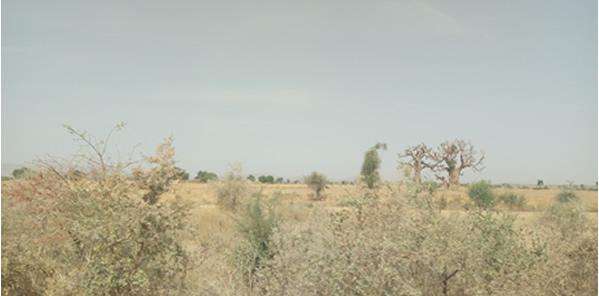The Yobe Government has advised residents to adopt safeguard measures against the heatwave (hot season) being experienced in the state.
Dr Mohammed Gana, the state Commissioner for Health and Human Services, gave the advice in a statement he signed and made available to newsmen on Sunday in Damaturu.
Gana expressed concern over the adverse effect of what he described as the very high temperature and intensive heat in the state.
He, therefore, advised the public to wear lightweight, light-coloured, loose-fitting clothing, stay under tree shades and environments with a lot of ventilation where the temperature is low and cool and cut down on exercise when it is hot.
“If you are not used to working or exercising in a hot environment, start slowly and pick up the pace gradually, and if walking or exercising in the heat makes your heart pound and leaves you gasping for breath, stop it.
“Get into a cool area or into the shade, and rest, especially if you become lightheaded, confused, weak, or faint,” he added.
Gana also advised residents to drink a lot of water and schedule their outdoor activities carefully.
“Try to limit your outdoor activity to when it is coolest.”
He also enjoined parents not to leave children or pets in a hot car.
“Cars can quickly heat up to dangerous temperatures, even with a window cracked open. While anyone left in a parked car is at risk, children and pets are especially at risk of getting a heat stroke or dying,” the commissioner warned.
While advising the public to avoid hot and heavy meals as they add heat to the body, Gana also urged them to stay hydrated by drink more of fluids.
“Drink more fluids, regardless of how active you are. Don’t wait until you’re thirsty to drink, stay away from very sugary or alcoholic drinks.
“These actually cause you to lose more body fluid. And also, avoid very cold drinks, because they can cause stomach cramps,” he said.
He also urged the public, especially during the Ramadan fasting, to restrict activities to early mornings and late evenings when the temperature cools off.
“Drink plenty of fluids after ‘iftar’ (evening meal) and at ‘sahur'(early morning meal) and to take more fruits and vegetables,” the commissioner suggested.
He added that elderly, obsessed and those having background illnesses such as diabetes, hypertension, heart and respiratory diseases are advised to be particularly more careful.
Gana also highlighted some manifestations of heat disorders to include hot, dry skin or profuse sweating, confusion, loss of consciousness, seizures, very high body temperature, difficulty in breathing and gasping.
Other disorders according to him are nausea, irritability, dizziness, muscle cramps or weakness, headache, fatigue and thirst.
He, however, said heat-related deaths and illnesses are preventable; though hundreds to thousands of people die every year globally as a result of extreme heat.
The News Agency of Nigeria (NAN) reports that temperatures in Yobe rise up to 45 and above degrees centigrade, especially within the months of March and May before the onset of the rainy season.

















